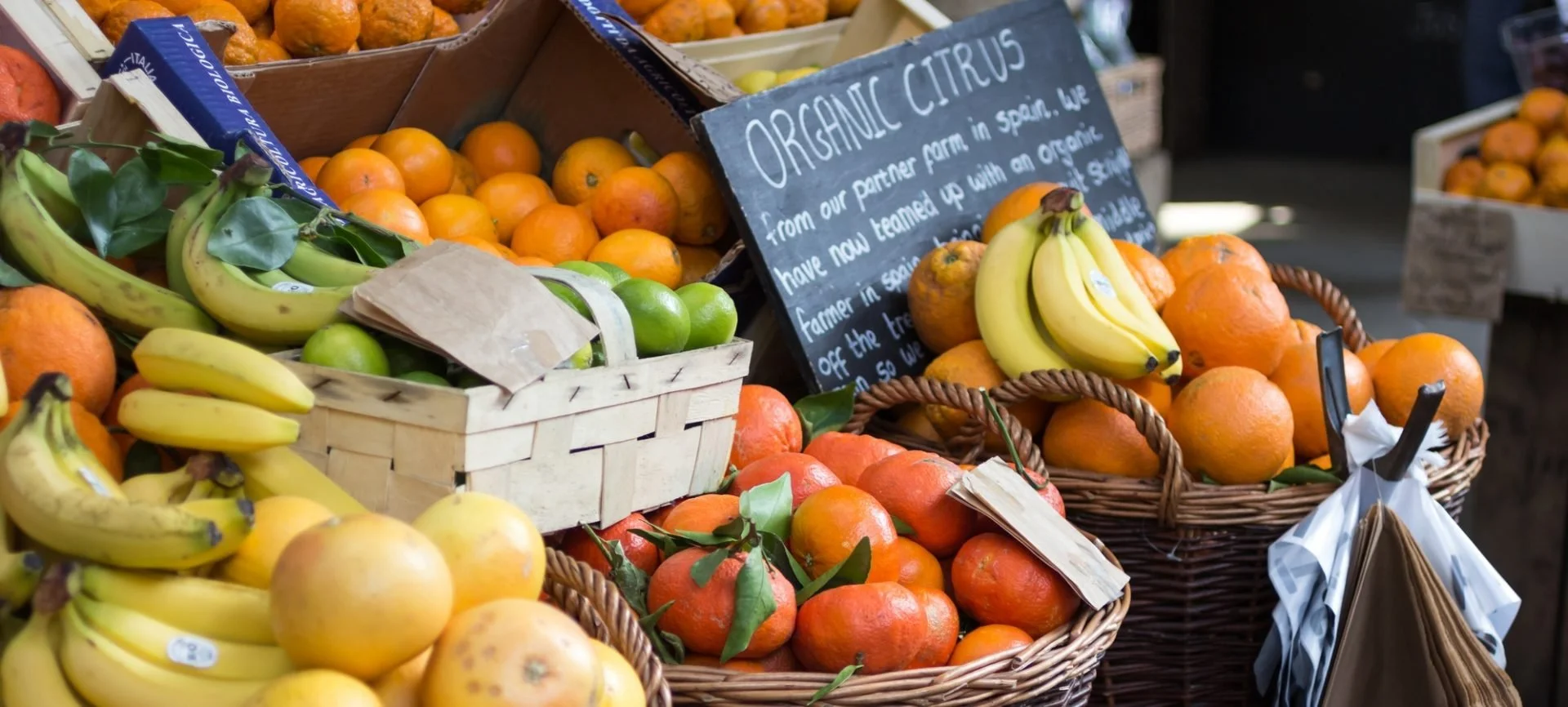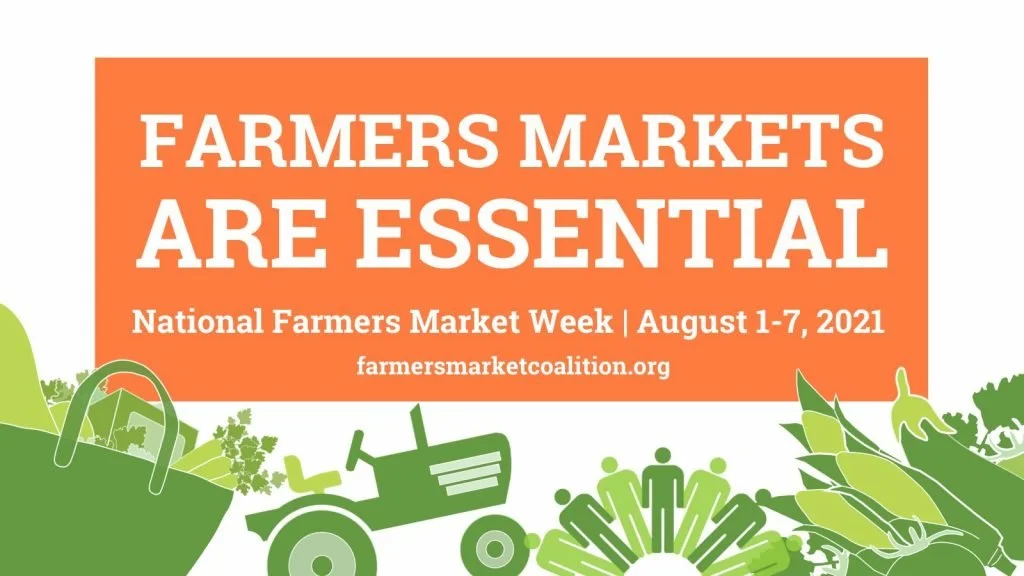Celebrating National Farmers Market Week With TexasRealFood
Discover > Farm to Table Eating in Texas > Celebrating National Farmers Market Week With TexasRealFood
While not the leading sector in food system economies, farmers markets contribute upwards of US$2.4 billion in sales to farms each year. In addition, they provide a physical realm for food access, crucial space for budding farms to launch, and a platform for innovative solutions to food system challenges.
Post-pandemic farmers markets have proved vital in connecting farmers and consumers as other supply chains are disrupted.
Our farmers markets, as like almost every other system, were hit by COVID-19. They showed their fragility but also revealed plenty of opportunities toward resilience and values-based food work. Communities have since experienced a surge of interest in local food, a renewed focus on local food systems, and critical discussions on fair play within the system.
In Texas, farms and subsequently farmers markets were hit by another calamity, in the shape of Uri, the winter storm of February 2021. Thus, in a matter of nights, the very lifeline that was holding up the responsibility of feeding us found itself amid a grave crisis. While some farmers markets have only recently returned to full functioning, some facts have become evident.
Infographics by www.nationalfarmersmarketcoalition.org
The pandemic has moved farmers markets to the forefront of the food system. Shopping for food in the outdoors became the only way to stay distanced and safe. In the months since, markets have offered a lifeline for farmer businesses and have met the demand for local food with innovative programs. The silver lining of 2020 is the growth of direct-to-consumer local food demand, the very stuff that farm-to-table is made of.
As we gear up for National Farmers Week 2021, we look at the importance of farmers markets and the value they bring to our community. Now in its 22nd year, the National Farmers Market Week (NFMW) is an annual celebration that highlights the important role farmers markets play in the nation’s food system. Amidst a global pandemic and nationwide change in the way people eat, it is now more essential than ever for markets to bring people together!
Markets are Critical in Farm-Direct Customer Relationships and Food System Resilience
Farmers Markets Build Systems
Farmers Markets connect resources and needs around local farm economies, community relationships, and healthy food access. As connectors, farmers markets aid online sales and food access amongst communities, thus becoming food hubs and sales generators. Farmers markets can also catalyze resilience through their engagement, networks, and intelligent programs.
Farmers Markets Unite Communities Around a Central Necessity – Food
Think about a typical visit to the grocers. There is hardly any interaction with folks around you. However, at a market, there is plenty of communication and talk happening. You have more opportunities to build social connections when you are actually participating with the people IN that community.
Farmers’ market operators have worked diligently during the pandemic to redesign operations and establish safety policies to continue to serve their customers. The pandemic has made it evident that local food systems with short supply chains can react quickly to change and prove resilient more than conventional systems.
Farmers Markets Embrace Innovations
COVID-19 made traditional farmers markets, bustling with people, nearly impossible to sustain. Instead, innovations were needed to get food to people; curbside pickup, preorder, and food box programs were the new designs that provided a safe and flexible form of market experience to support farmers and make healthy food reachable.
Farmers Markets are also maintaining—or boosting—sales despite safety challenges. In Texas, markets with such programs are more likely to see sales growth in the post-pandemic world. Such initiatives have substantial potential to increase local food access.
Farmers Markets Impact the Economic Growth of their Communities
Farmers markets directly support the farmer and their families. There are other indirect bonuses as well. For example, home values rise where markets are located, the revenue of businesses located near the markets also increase as markets are catalysts for change within communities.
Farmers Markets Increase Access to Real, Nutritious Food and Support Healthy Communities
According to USDA FNS data, in 2017, 7,377 farmers and farmers markets across the nation were authorized to accept Supplemental Nutrition Assistance Program (SNAP) benefits. That year, more than $22.4 million SNAP benefits were redeemed at farmers markets. This brings more and more fresh, local produce to the doorsteps of low-income neighborhoods and enables SNAP beneficiaries to purchase the nutritious food their families need to stay healthy.
Farmers market vendors educate their shoppers. They discuss farming practices with their customers, nutrition and food preparation ideas.
Farmers markets foster sturdy relationships between community members and farmers, which naturally leads to a more fair and sustainable food system.
Funding is Essential to Support Farmers Markets
We have witnessed a growing momentum around farmers markets this year, but they require support. Nationally, markets are reporting increased staffing, and necessary funding is needed to implement several options to make it easier to serve communities and keep farmers in business. In addition, federal and state-level farmers market promotion initiatives are required to increase operational size. Nevertheless, the past year has exhibited the massive potential that farmers markets hold to support local food systems, and with the proper support, this can be tapped to its total capacity.
This year, NFMW messaging will focus on community resilience and how market operators have supported their communities throughout the pandemic.
The National Farmers Market Week (NFMW) celebration will run August 1 - 7th, 2021
The Farmers Market Coalition Has Some Amazing Suggestions on How You Can Promote Your Market and Celebrate NFMW!
Plan Your Market’s Message
It’s important to promote the unique aspects of your market to set it apart from other markets!
History
Share background on the history of your market. How did it come to
be? How has it grown? Challenges and successes? Plans for the future. What is your market’s mission?
Health and Safety
What policies and protocols have you put in place to reassure your customers, vendors, and staff that the market is safe?
Community
How does your market bring people together? Who are the familiar faces at your market? How does your market impact your community?
Access
How does your market make fresh food affordable and available? Are there key partnerships that add to the market experience? Do you have market shoppers willing to share why food access is important to them?
Diversity and Inclusion
Who are your customers and vendors? How do the products they sell meet the demands of the community? How is your market working to ensure everyone feels welcome?
Economy
Who are the entrepreneurs/farmers/vendors at your market? How does your market support and promote their business? Are there specific data points that you can share to demonstrate the market’s economic impact?
Programs
Does your market operate educational and/or sustainability (for example, composting) programs/events/initiatives? Give a little background on how they came to be and any ideas or expansions for the future.
Behind the Scenes
Share about the market staff and the efforts it takes to make market day happen. Touch on what makes the market special, the community it serves, and how it is important to you.
-Cited from www.farmersmarketcoalition.org
Local Event Alert!
A noteworthy event to attend in relation to the National Farmers Market Week is being organized by Slow Food DFW, a chapter of Slow Food USA. Slow Food DFW seeks to create dramatic and lasting changes in the food system by helping people reconnect with food traditions, plants, animals, fertile soils, and waters that produce our sustenance. They inspire individuals and communities to change the world through various events every year that provide actionable measures to enjoy, understand and change the food system.
Slow Food DFW will have a “Thank a Farmer” booth on August 7th for National Farmers Market Week (August 1-7) to support farmers, ranchers and market managers at:
8 am to noon at 9150 Garland Road, Dallas, Texas
8 am to noon at 768 W. Main St, Coppell, Texas
10 am to 2 pm inside The Market at Dallas Farmers Market 920 S Harwood St #162, Dallas, TX
Join Slow Food DFW to express gratitude for farmers markets and local farmers who make it possible for nutritious, real food to reach us all through these challenging times.
If you are a consumer not familiar with farmers markets around you, head onto the TexasRealFood directory and, with a simple touch, find out where you should be headed this NFMW for all your food purchases! Who knows, the lively ambience of Texan Farmers Markets might have you hooked!
If you're a seller or buyer of raw milk in the farmer's market, you'll want to read this post for the latest regulations for raw milk in Texas.







